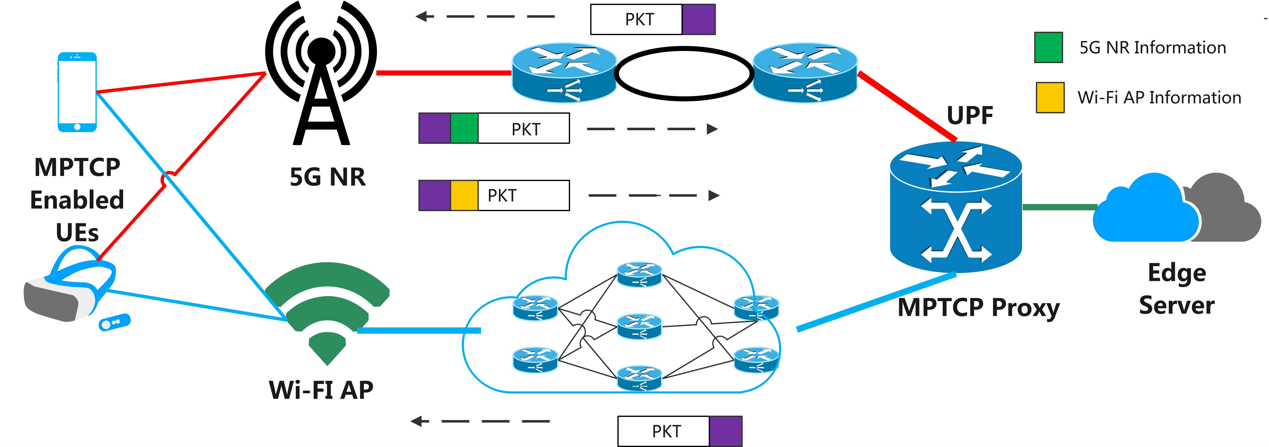Research progress on Multipath Scheduler for Low-Delay Applications in 5G Edge Networks
In recent years, VR applications that require extremely low latency and high image quality have been widely used in online games and other 5G scenarios. However, the limited bandwidth of 5G New Radio (NR) presents some challenges when handling VR flows, mainly due to the microburst nature of VR traffic, where many packets are sent on the order of milliseconds. When multiple VR streams with such characteristics are transmitted simultaneously, the queuing delay of the 5G edge network increases rapidly, causing VR data blocks to miss the deadline. Therefore, achieving low-latency data transmission for multiple VR streams has become one of the biggest challenges in delivering VR at scale.

Figure 1. The network topology where MPTCP proxy is deployed on the 5G edge network.
The wireless transmission optimization team of CNIC's Advanced Network Division proposed a new MPTCP scheduler for cloud VR applications in 5G edge networks, called the Cross-layer information-based one-way delay Predictive Scheduler (CPS). The core idea of CPS is to predict the transmission delay of data blocks in UPF through cross-layer information from the application and the edge wireless network and to enable as many VR data blocks as possible to complete transmission before the deadline through adaptation. The related research results have been published in the 2023 IEEE International Conference on Computer Communications and Networks (ICCCN-2023).
For details, please contact Baosen Zhao(zhaobaosen@cnic.cn)
